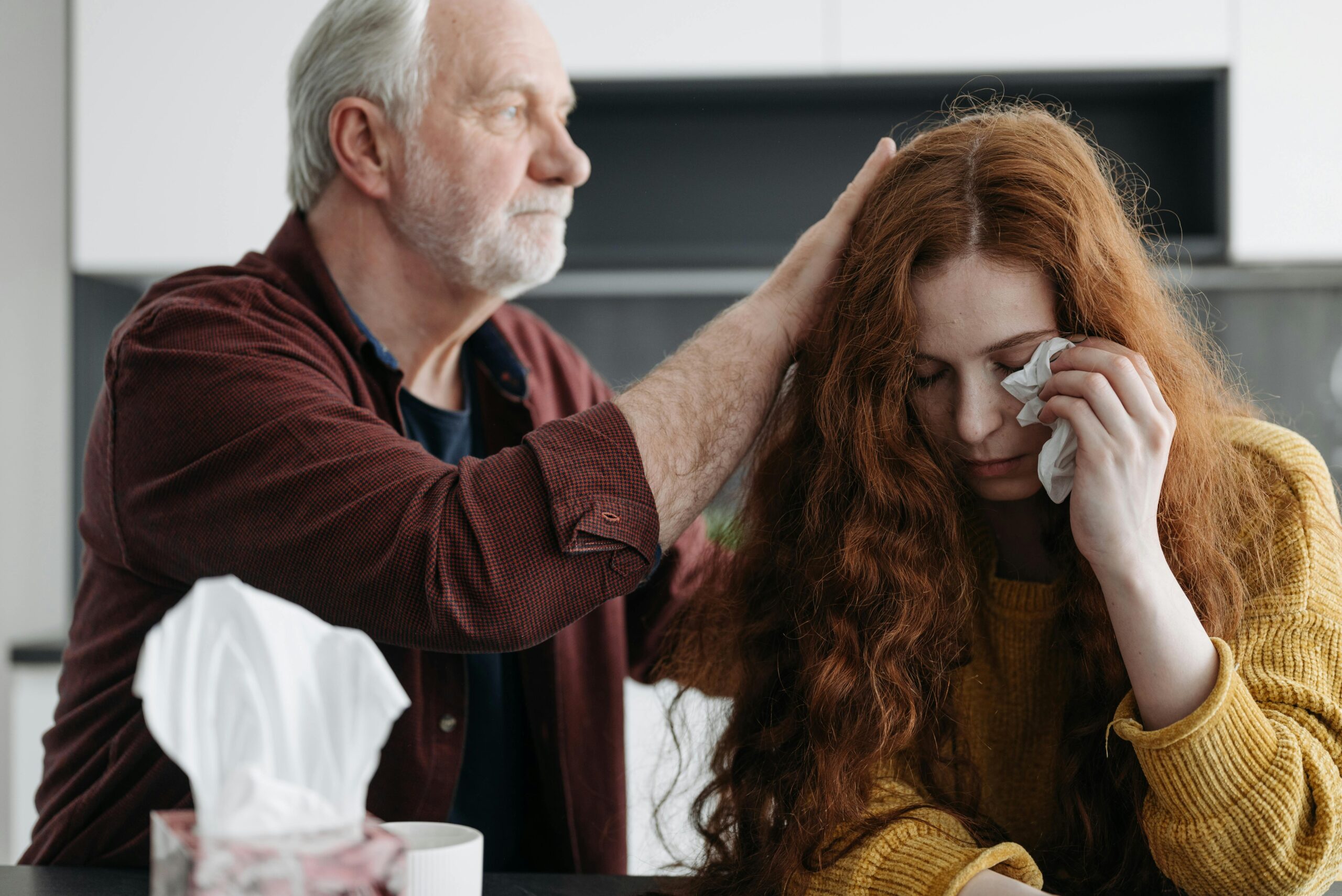How to Help an Alcoholic in Los Angeles: A Guide for Families and Friends

The reality of alcohol addiction in LA is devastating. Alcohol abuse is one of those problems that affects more than individuals struggling with it. It leaves its trace on friends and family as well as wider communities and the country as a whole. The problem of alcohol abuse in Los Angeles is so widespread that everybody is wondering how to help an alcoholic. This is not an easy task, and it becomes especially challenging when someone who needs help doesn’t want it. That’s why, at our rehab in Sun Valley, we’re here to offer guidance, support, and hope to anyone facing this challenge.
We want to help you understand alcohol addiction and recognize the early signs of a drinking problem. Furthermore, we want to share input on how to help an alcoholic, more specifically, how to help a family member with alcoholism and how to help an alcoholic friend. A special section of this text will be dedicated to understanding how to help an alcoholic who doesn’t want help. Compassionate support, setting boundaries, and seeking professional help are good places to start.

Understanding Alcohol Addiction
Individuals suffering from alcohol use disorders (AUD) overindulge in alcohol, posing a risk to themselves and others. Some people drink heavily or engage in binge drinking—a pattern of excessive drinking that happens on a single occasion and then does not repeat itself until the next similar, often social event.
Those who abuse alcohol, on the other hand, are chronically drinking to a degree that impacts their daily functioning, like school work or family obligations. They have lost control over their alcohol use and are alcohol dependent.
While severe alcohol problems get the most attention, it is important to note that even mild to moderate problems can cause substantial damage to individuals, their families, and the community. This makes it very important to recognize the early signs of a drinking problem and provide support to those struggling with it.
How to Help an Alcoholic Who Doesn’t Want Help
You might wonder why someone experiencing problems with alcohol would refuse help. Denial is common among alcoholics, and many are unaware of their alcohol dependence. For anyone wishing to know how to help an alcoholic who doesn’t want help, here are a few simple tips:
- Approach with empathy, not judgment. Anyone struggling with addiction wishes to be understood and accepted.
- Express concerns using “I” statements (e.g., “I’m worried about your health”). Be careful not to sound as if you are accusing them.
- Avoid lecturing, blaming, or setting ultimatums. This behavior can make them stay away from you rather than seek help.
- Encourage small steps instead of demanding immediate treatment. Once they are ready, you can help them find adequate alcohol addiction treatment Los Angeles.
In this process of supporting someone struggling with alcoholism, don’t forget to care for yourself. Sometimes, you must step back and give them space to take responsibility for their health.

How to Help an Alcoholic Friend
Oftentimes, we do not recognize when someone close to us is struggling with alcohol dependence. This is often the case with friends because we spend only small portions of the day with them. Once you become aware of your friend’s struggle, the question of how to help an alcoholic friend will undoubtedly appear.
- Your first task would be to talk to them about their drinking habits. It’s important you don’t sound judgmental but rather accepting. You don’t want them to feel guilty. Instead, you want them to feel empowered to seek help.
- Next, you should encourage them to seek professional help. You can even offer to connect them with resources in Los Angeles, like the Tranquility Recovery Center.
- Finally, you can offer your support without enabling alcohol use. This support can be emotional, informational, or instrumental. It’s always a good idea to ask them what it is that they need and act accordingly.
How to Help an Alcoholic Spouse
The biggest challenge to overcome when being married to an alcoholic is the emotional toll it has on the relationship. At the same time, you might feel burdened by your spouse’s problem and motivated to help them overcome this challenge. Both are normal reactions, and finding support can help you deal with them.
It’s important to remember you do not have to go through this alone, and you can seek external help and assistance while helping your loved one. One of the things you must do for yourself is set healthy boundaries. They’ll help you protect yourself and avoid enabling behavior that makes you part of the problem and not part of a solution.
You should encourage your spouse to seek professional help but also seek therapy for yourself to navigate the challenges of loving an alcoholic. Support groups in Los Angeles for spouses of alcoholics are especially helpful. They provide a sense of belonging and understanding and make you feel welcome and supported. Furthermore, they can help you learn how to help an alcoholic spouse while caring for yourself as well.
How to Help a Family Member with Alcohol Addiction
For those who are looking for practical tips when asking how to help a family member with alcohol addiction, here are some treatment options we suggest you explore:
- Detox and inpatient rehab. Alcohol detox Los Angeles should be the first step in alcoholism treatment. It aims to cleanse the body of any traces of alcohol and prepare a person for intense psychotherapy and complementary treatments. At Tranquility Recovery Center, you can find inpatient programs that offer structure and intense care, aiming to develop life skills that can serve you for a lifetime.
- Outpatient rehab. Those who require more flexibility and maintain their daily routine can still experience all the benefits of an intense inpatient program even if they opt for Tranquility outpatient rehab San Fernando Valley. Outpatient programs require adherence to a specifically tailored treatment, including psychotherapy and counseling. This way, the goals of the rehab are still achieved.
- 12-step programs and alternative recovery approaches. The role of support groups and programs like the 12-step program is irreplaceable in recovery from alcoholism. So-called alternative approaches are complementary methods to evidence-based treatments, and they help with emotional regulation and stress management
Find yourself in a situation where your family member refuses to get professional help. You can contact Tranquility Recovery Center to help stage an intervention in Los Angeles. Interventions are known to impact people´s perceptions, and most frequently, they result in them seeking professional support themselves.

How to Cope with an Alcoholic Family Member
Similar to having a spouse struggle with alcoholism, having someone in your family suffer from AUD will undoubtedly affect all family members. You can expect a range of emotions and to feel tired and overwhelmed. Managing this emotional burden becomes easier when you can count on others, whether the rest of your family or professionals, who can aid you.
To avoid codependency and enabling behavior, the family should be involved in the psychotherapeutic process. Family therapy relies on family dynamics to uncover the underlying causes of addiction. Furthermore, these sessions educate and empower all family members. They teach them how to help a family member with alcoholism while caring for their own needs and mental health. Psychotherapy and support groups provide emotional support for the family and can, therefore, help you deal with the challenges of supporting an alcoholic in your family.
Alcoholism Resources and Treatment Centers in Los Angeles
When trying to help a person struggling with alcohol abuse, it is essential that you seek professional support. Los Angeles is known as a progressive and innovative city, and therefore, many alcohol rehab facilities can respond to your needs and preferences. You can also count on the support of the local community, which is culturally diverse and welcoming.
Finally, you can rest easy if you’re asking yourself questions like does Blue Cross Blue Shield cover rehab or will Aetna cover my recovery. Tranquility Recovery Center accepts BCBS and Aetna insurance coverage for rehab, making alcohol rehab accessible to many.

How Tranquility Recovery Center Can Help
Tranquility Recovery Center is a prime rehab facility for alcohol addiction, offering its services to the local community of LA and anyone willing to join us in the Sun Valley. Our comprehensive and well-rounded programs are customized to your needs, circumstances, and preferences. An alcohol rehab program that we would tailor for your loved one could include a combination of the following:
- Personalized detox. Detox is the first step in any recovery process by which we cleanse the body from the substance and set a solid base for the following work.
- Inpatient treatment. During inpatient treatment, your loved one would be attending psychotherapy and counseling sessions that would help them overcome the underlying causes of alcohol addiction.
- Family therapy and support programs. These aspects of alcohol addiction recovery rely on group dynamics to both understand your loved one’s condition and empower them to take control over their lives.
- Holistic recovery approaches. Complementary approaches, including mindfulness, teach your loved one to manage daily stressors in a healthy way.
- Care for mental health. We at Tranquility Dual Diagnosis Treatment Center Los Angeles can help your loved one address any co-occurring mental health problems while simultaneously working on alcohol dependence.
You’re Not Alone — Help Is Here for You and Your Loved One
Support is essential to recovery, but providing support for others can be exhausting and overwhelming, especially when those struggling do not want your help. Remember, you can always reach out to professionals who can show you how to help an alcoholic, whether it is your friend, spouse, or family member. You’re not alone in this. Call Tranquility Recovery Center and get support for yourself and your loved one.
You Have Questions
We Have Answers
At Tranquility Recovery Center, we offer treatment for a wide range of addictions, including alcohol, opioids, prescription drugs, and illicit substances. Our team tailors each program to meet individual needs, focusing on both the physical and emotional aspects of recovery.
At Tranquility Recovery Center, we offer treatment for a wide range of addictions, including alcohol, opioids, prescription drugs, and illicit substances. Our team tailors each program to meet individual needs, focusing on both the physical and emotional aspects of recovery.
At Tranquility Recovery Center, we offer treatment for a wide range of addictions, including alcohol, opioids, prescription drugs, and illicit substances. Our team tailors each program to meet individual needs, focusing on both the physical and emotional aspects of recovery.